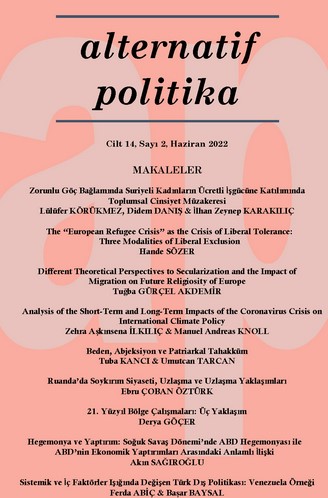RUANDA’DA SOYKIRIM SİYASETİ, UZLAŞMA VE UZLAŞMA YAKLAŞIMLARI
POLITICS OF GENOCIDE, RECONCILIATION AND RECONCILIATION APPROACHES IN RWANDA
Author(s): Ebru ÇOBAN ÖZTÜRKSubject(s): Government/Political systems, Studies in violence and power, Transformation Period (1990 - 2010), Peace and Conflict Studies
Published by: Rasim Özgür DÖNMEZ
Keywords: Rwanda; Conflict Resolution; Reconciliation; Politics of Genocide;
Summary/Abstract: With the mass participation of the people in Rwanda, acts of genocide took place. Since in the history of the country, the cycle of violence repeated, conflict resolution and reconciliation processes were necessary to prevent violence. The government-initiated reconciliation with the support of the international society and achieved economic and political reforms. However, the Tutsi government’s reconciliation policies instrumentalize the genocide for its own legitimacy. The fact that the Tutsi were subjected to genocide seems to have provided a legitimate basis for the exclusion of other victim groups, the continuation of the Tutsi government. The government monopolized memorials with compulsory participation, the sole Tutsi victimization, an official history based on selected victimization, the prohibition of the use of ethnic identities, compulsory education camps, the existence of local courts considering lesser crimes as genocide mean that the government is pursuing politics of genocide rather than reconciliation. By controlling the media, politics and local administrative units, the government has started to use the genocide as a means of legitimizing its own power with the help of surveillance mechanisms. In the study, how reconciliation has become an obstacle to genuine reconciliation and politics of genocide will be discussed.
Journal: Alternatif Politika
- Issue Year: 14/2022
- Issue No: 2
- Page Range: 332-358
- Page Count: 27
- Language: Turkish

